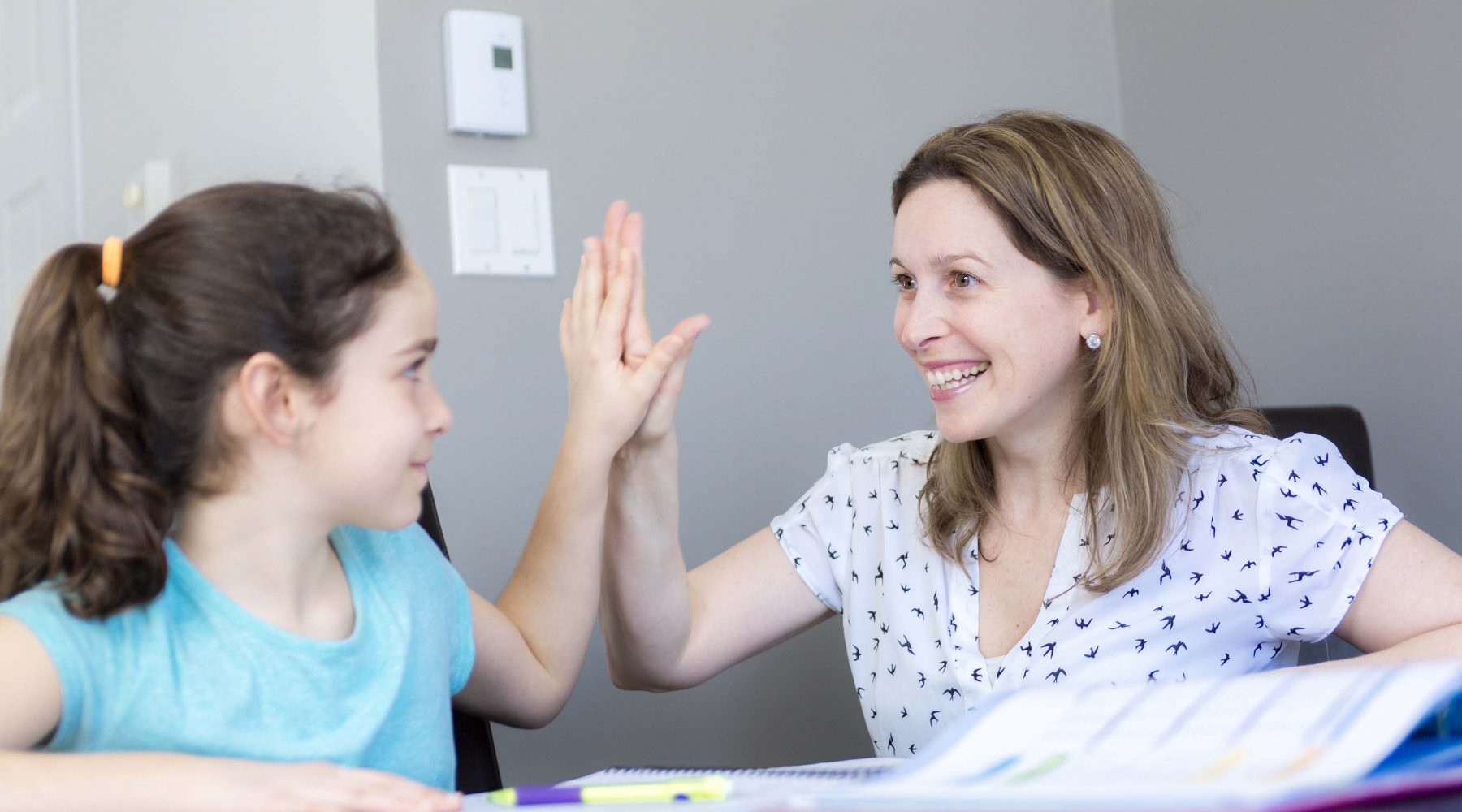
Prep, and years 4, 7 and 9 are developmental 'leap' years for kids, writes Marise McConaghy. She provides tips for parents to support their children during these formative stages.
As parents, understanding the crucial stages of your children’s development can provide valuable insights into the changes and milestones they’re facing, particularly at school where we tend to have less visibility.
As your child advances through important developmental periods, there are ways to encourage curiosity in a variety of different environments, while allowing them to embrace their increasing sense of independence.
While kids are constantly growing and changing, prep, years 4, 7 and 9 are considered ‘leap years’ when a child’s view of themselves, their peers, and the world around them can shift significantly. Here are ways parents can support their child through these formative ages.
Prep – what to expect
Making the transition from kindergarten to Prep should be a positive experience for any child. A curriculum that provides opportunities for play-based investigations and explicit teaching in Mathematics and English supports the natural development of a variety of skills. These opportunities allow children to develop speaking and listening skills and positively navigate new relationships and peer groups.
When young children explore the concepts of number and language in a developmentally appropriate way, the reliance on the memorisation of facts or cognitive load is reduced. When children investigate through play, the learning is visible and documented in a way that makes sense to a child and increases their capacity to develop a true deep understanding of the content being explored.
In prep, kids make friends, express their feelings and start understanding complicated concepts like right and wrong. Peer relationships begin to change with children seeking approval from their friends, and the recognition and following of rules becomes increasingly important.
Tips for prep parents
The transition to school days can initially be exhausting for many children. Maintaining on-task behaviours and containing emotions at school can sometimes lead children to release their emotions at home. Giving preps time to relax and play after school and have freedom in their day helps restore balance. Supporting them with a regular bedtime routine and enough sleep is crucial to managing this transition.
Some children will slot into their new environment with greater ease than others and this is a normal response, as are the differences you will have observed in children reaching developmental milestones such as talking, walking and being toilet trained. Similarly, your child will manage this new milestone in their life at their pace.
What assists this movement forward is ensuring you have a positive attitude towards school and your child’s capacity to cope and manage in this new environment. Children have ‘anxiety antennae’ that pick up any concerns or worries you have about them, so being positive at the school gate as you drop your child off with a rehearsed short ‘goodbye phrase’ can assist this process.
Year 4 – what to expect
During Year 4, students are maturing and physically developing at different rates. Children are growing fast, have big appetites and need a lot of sleep. For some, hormones, puberty and changing bodies begin to influence how they think, feel and act.
At this time, there’s a stronger differentiation in the interests of children. Some will happily engage in make believe play while others are focussed on issues in their community.
Kids in Year 4 begin to understand different points of view and how things are connected – to see the bigger picture. With this developing maturation of thinking about others, there is a growing awareness of injustice and making connections between what is being learnt at school and what happens in real life.
Friendships become more complex and important and for many, there is a greater sense of needing to appear part of a group, of being accepted and underpinning that, an awareness of how others perceive them.
Tips for Year 4 parents
Around this stage, children should be encouraged to develop interests that bring them a sense of joy, interest and fulfilment. Many interests can be explored with little to no cost, and without the structure of formal extracurricular activities. An interest in gardening, cooking, crafts and learning about animals or insects can all be done at home, with a library card or with online resources. The aim is to find things your child is passionate about and to foster the exploration of these interests.
For things your child enjoys less, ensure they follow through until they finish the program such as a term of music lessons or a season of sport. It’s important they learn the value of commitment and follow through.
Listen to your child’s difficulties, hear the emotions behind their experiences and acknowledge that, ‘this must have been really difficult for you, I think I would have felt sad if that happened to me. What were you thinking about it all?’ Remember it is more important for your child to feel listened to and cared for than solving their problem. Giving your child the opportunity to find solutions helps them test strategies they will utilise in the future.
Year 7 – what to expect
The transition to secondary school for Year 7 students is significant, as they’re suddenly the youngest and back at the start of the education ladder in this new school environment. At this stage their capacity for abstract thinking and problem solving is developing quickly. Children in Year 7 may begin to critically question things and not take everything at face value. They’re beginning to consider how current actions can affect the future, both on a personal level and global scale and may begin to worry about significant current and personal events like climate change or family health.
Young people at this age are often acutely aware of their peers and appearances, wanting to ‘fit in’ and assimilate. They are increasingly more likely to avoid appearing as an individual and more comfortable presenting as similar to their friends.
In Year 7, children often physically mature faster than they emotionally mature. A wide spectrum of physical development during puberty finds children more aware of how they are perceived by others, and the tendency to want to fit in, and to follow trends, can contribute to issues around body image.
Planning, the ability to foresee consequences and impulsivity are still challenges, as those parts of the brain are still developing.
Tips for Year 7 parents
The transition to secondary school often coincides with an increase in homework and it’s important to assist your child to manage and learn to balance schoolwork, extracurricular activities and their wellbeing. Ensuring there are opportunities to have downtime to do things that give them a sense of enjoyment are equally as important as homework. Assisting them to establish a good balance in their routines after school is crucial moving forward.
This is a critical time for young people to practice making decisions on their own and to be given more responsibility for specific household tasks and their own personal health and wellbeing. The more life skills they learn now, the greater the likelihood of their capacity to cope during their transition to adulthood.
Year 9 – what to expect
Year 9 is an important year for developing independence and individuating. At this stage, young adults develop more mature thinking skills, become more cognisant of the far-reaching consequences of actions and thinking about setting future goals. However, their brains are still being re-wired and it’s crucial that parents guide and support their young person during this time.
Friends become almost as important as family. Young people will invest more time in peer groups and will experiment with their looks, behaviours and attitudes as their individuality and identity start to take shape. Relationships, intimacy and sexuality are all key at this stage of development. Young adults start to develop a stronger sense of who they are and what positive things they can contribute to friendships and other relationships. This is also a stage where some risk-taking behaviour may become evident.
Challenging family values and beliefs are central tasks for this stage of development. While they may become upset at boundaries, research shows that young people feel safest when there are clear limits placed on their behaviour.
Tips for Year 9 parents
Let your child make mistakes – don’t rescue them from disappointments. Making errors and then learning how to cope with the consequences is an important developmental task. If they require it, be there to support them in solving any bigger problems they face. Where appropriate, let your child make their own choices and support them in this process.
Have open discussions and invite your child to share their opinions. Listen to and acknowledge their evolving interests, thought processes, ideas and passion, even if it is different to yours. Be patient with differences in values and beliefs. This is a time for experimentation with identity, so be patient as they try different looks, attitudes, friends and values.
Meet their friends and accept their friendship choices without judging too harshly. Have a quiet, steady presence in their social life. Drive them to events and pick them up so you can gain an understanding of how they’re spending their time and who with. Being quietly available will provide insight on what your child likes and what they talk about.
About the author
Marise McConaghy is the Principal of Strathcona Girls Grammar, a Member School of Independent Schools Victoria.
Like this post? Please share using the buttons on this page.
Subscribe to The Parents Website

